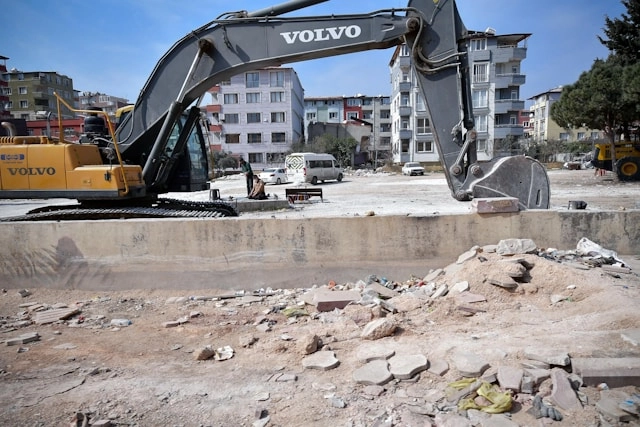What to Do in Case of an Earthquake?
Earthquakes are among the most destructive natural disasters, and preparing in advance is essential. In a country like Turkey, which is located on active fault lines, taking the right steps during an earthquake can save lives. Being knowledgeable about the correct actions to take during and after an earthquake can help you survive. In this article, we will discuss everything you need to know about what to do in case of an earthquake.
Preparation Before an Earthquake
Preparing before an earthquake can save lives and minimize potential damage. Here are some essential precautions to take:
Prepare an Emergency Kit
Every household should have an emergency kit. This kit should contain enough supplies to last at least 72 hours. Items to include:
- Water and food (canned goods, dried foods, energy bars)
- First aid kit
- Flashlight and extra batteries
- Mask, gloves, disinfectant
- Spare clothing
- Important documents (ID, passport, title deeds, insurance policies, etc.)
- Phone charger and power bank
Secure Furniture and Appliances
Secure heavy furniture and appliances to prevent them from falling during an earthquake. Bookshelves, cabinets, and other heavy objects can pose a significant danger during the event. Make sure that furniture is anchored to the wall and windows are secured.
Create a Family Emergency Plan
Create a plan with your family on how to communicate and where to meet in case of an earthquake. In larger cities, phone lines may not work due to high traffic, so it is important to decide on a specific meeting point beforehand.
What to Do During an Earthquake?
Knowing how to act during an earthquake can increase your chances of survival. Here are the actions to take during an earthquake:
Stay Calm and Don’t Panic
Panic can prevent you from making the right decisions. First and foremost, stay calm and encourage others around you to do the same. Fear and panic increase the risk of injury.
If You’re Indoors: "Drop, Cover, and Hold On"
If you are indoors during an earthquake, follow these steps:
- Drop: Stay low to the ground and maintain balance.
- Cover: Protect your head and neck by taking shelter under something sturdy or covering your head with your hands.
- Hold On: Hold on to a stable object to keep yourself protected. If possible, seek shelter under a table or desk.
If You’re Outdoors: Move to an Open Area
If you are outside, move away from tall buildings, power lines, and trees. Staying in an open area protects you from falling debris. If you are in a vehicle, stop the car and wait in a safe location.
Don’t Use Elevators
Using elevators during an earthquake is very dangerous. Power outages or system malfunctions may trap you inside. Always use the stairs.
Stay Away from Windows and Glass
Stay away from windows and glass during an earthquake. Windows may shatter, posing a risk of injury. Also, avoid standing near walls as they may collapse.
What to Do After an Earthquake?
After an earthquake, there are several important steps to take in the midst of the devastation and chaos.
Check Yourself and Your Family
The first thing you should do after an earthquake is check on yourself and your family. Avoid panic and do not rush to leave the building. Be cautious when inspecting the damage to your home. If there are serious injuries, contact emergency services immediately.
Check for Gas Leaks and Electrical Hazards
Before leaving the building, check for gas leaks, electrical issues, or fire hazards. If you smell gas, leave the building immediately and wait in a safe place. Inspect for broken electrical wires as well.
Communication After an Earthquake
Phone lines are likely to be congested after an earthquake. Text messages are often more reliable. Use your phone to send short and clear messages for emergency assistance. Avoid calling emergency numbers unless necessary, as this may prevent others from reaching help.
Don’t Enter Collapsed or Damaged Buildings
Avoid entering collapsed or damaged buildings. Not only are these structures dangerous for you, but they may also obstruct the efforts of rescue teams. Stay away from areas that pose further risk.
Only Request Help When Absolutely Necessary
If you or someone nearby is seriously injured, immediately seek medical assistance. However, if the injuries are minor and you can manage on your own, avoid tying up emergency services.
Psychological Support After an Earthquake
Earthquakes can also have a significant psychological impact. Many individuals experience stress, trauma, and fear after an earthquake. Seeking psychological support can help you recover emotionally and mentally.
- Remember that post-earthquake stress and trauma are normal.
- Seeking professional support can accelerate your emotional recovery.
- Stay in touch with family and friends. Being together during this time is vital.
Participate in Earthquake Drills
Learning the correct behavior during an earthquake can be life-saving. Many local authorities and disaster management organizations conduct earthquake drills. Participating in these training programs will increase your awareness of natural disasters.
Conclusion: Preparedness is Key to Surviving an Earthquake
Earthquakes, unfortunately, cannot be predicted. However, being prepared, taking the right steps, and remaining calm can save your life and the lives of those around you. This article has outlined the essential steps to take during and after an earthquake. Remember, the right actions during and after an earthquake increase your chances of survival.






